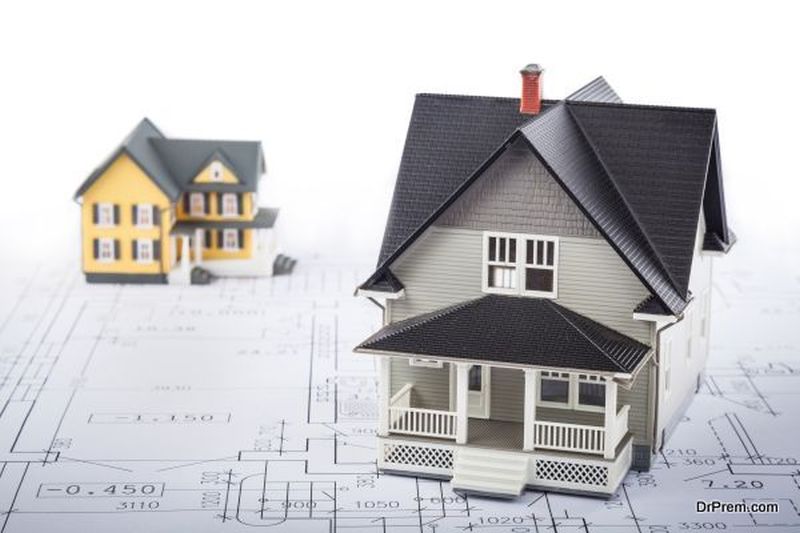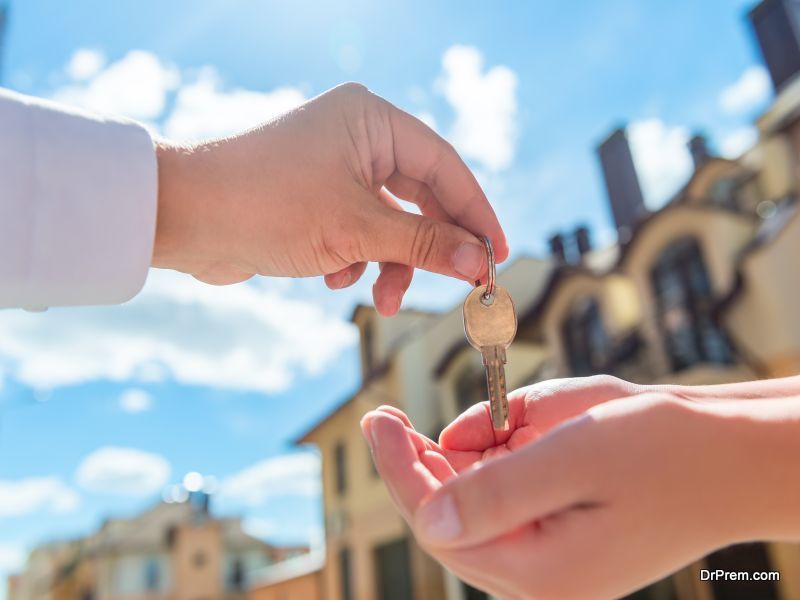Buying a home that is in foreclosure isn’t like conventional or traditional home buying. In most cases, the seller is going to want a preapproval letter from your lender before they accept an offer, although this won’t matter at an auction, which requires cash on hand. Don’t expect any room for negotiations; if there is any, it won’t be much. Also, be prepared for homes sold ‘as-is’, meaning the burden of paying for repairs is on your shoulders, and there might be a lot of work needing to be done. On the other hand, a lot of foreclosure homes owned by banks are typically vacant, and that can expedite matters.
In general, the process starts with finding an agent that specializes in foreclosures and getting pre-approved for a mortgage, unless you take the auction route. In either case, you should know how long it typically takes to sell homes in your community in that price bracket. You should also study recent sale prices of any comparable homes in the neighborhood on a foreclosure properties list site.Whatever you do, always remember that the home is sold as it stands or sits.
Purchasing a foreclosed home from HUD
The housing and urban development is a national ensure of FHA mortgages throughout the nation and many of which end up going through a foreclosure process. It is important to know that FHA has two types of mortgages one is a purchase program for most first-time buyers require in as little as 3 1/2% down and another program for senior citizens age 62 and older called the home equity conversion mortgage which is a special type of mortgage program for seniors age 62 and older which allow for them to access some of their equity to pay for retirement expenses without having to apply a monthly repayment. When the homeowner dies, FHA servicing will give the borrowers heirs Up to 12 months to refinance or sell the home and if that has not happened after 12 months FHA miss begin foreclosure proceedings. Learn more about reverse mortgages and how to circumvent the foreclosure process at ReverseMortgageReviews.org.
 You do need to keep a long view in mind when looking at a foreclosed home. They can represent tremendous bargains with incredible potential for value, and the three reasons they are often bought are to flip for a quick resell, rent out for income, or to buy your own home as cheap as you can. If you’re looking to flip for a fast resell, do you have a plan B if things take time? Have some idea what the value of the home may do over 5 or 10 years in case you’re stuck with it that long. Even if you plan on moving your own family in, look into this. The savings a foreclosure represents can easily be wiped out by declining home values in a local market.
You do need to keep a long view in mind when looking at a foreclosed home. They can represent tremendous bargains with incredible potential for value, and the three reasons they are often bought are to flip for a quick resell, rent out for income, or to buy your own home as cheap as you can. If you’re looking to flip for a fast resell, do you have a plan B if things take time? Have some idea what the value of the home may do over 5 or 10 years in case you’re stuck with it that long. Even if you plan on moving your own family in, look into this. The savings a foreclosure represents can easily be wiped out by declining home values in a local market.
On top of three reasons you might buy a foreclosure, you might also as many as three different types of foreclosures, although this does vary from state to state. Strict foreclosures are when a lender is able to file their lawsuit after a homeowner defaults on their loan and the mortgage holder becomes the new property owner, often selling immediately. Strict foreclosures are only permitted in a handful of states.
Judicial foreclosures are allowed in every state, and some of them even require it. This process starts when a borrower is delinquent on their mortgage payments and a lender lawsuit demands repayment of them. Should the borrower fail to appear or not provide a valid defense, then the court will grant a judgment against them. Still, the borrower will have time where they can redeem the property, but if they don’t, it is sold at auction.
The third kind of foreclosure is called a power of sale, but also known as a non-judicial foreclosure. In cases like these, the courts are not involved at all. A lender simply sends the homeowner notices throughout the waiting period and then is able to auction it off without needing help from local law enforcement.
 You can either be a foreclosed home through an auction or directly from a bank that has taken ownership of it, click here to find out more. Auctions are often dramatized on some cable shows, but they’re not an easy road to take. If you show up, you’re going against professional real estate investors. Also, you have to pay in full, immediately, in cash, and that typically takes several hundred thousand dollars. Also, you don’t get the chance to tour the inside nor have an inspection done. The risks are high, but so are the rewards.
You can either be a foreclosed home through an auction or directly from a bank that has taken ownership of it, click here to find out more. Auctions are often dramatized on some cable shows, but they’re not an easy road to take. If you show up, you’re going against professional real estate investors. Also, you have to pay in full, immediately, in cash, and that typically takes several hundred thousand dollars. Also, you don’t get the chance to tour the inside nor have an inspection done. The risks are high, but so are the rewards.
It’s much easier buying straight from a bank, who has a real estate agent on hand to help them get foreclosed properties off of their hands. You can start this process by making an offer, which is either accepted, counteroffered, or declined. However, banks are looking to offload such properties, so your odds of acceptance or counteroffer are much higher than simply being told no thanks. RealtyTrac has data suggesting that a typical bank-owned property sells for more than a third less than local comps. So, buying from a bank can mean substantial savings, even if you don’t go to an auction. Plus, you can have the home inspected before you commit to the transaction.
Depending on what kind of foreclosure you are buying, you might actually have to deal with the defaulted owner, as they might still be living on the premises. Your first concern here is evicting them, and your second is the possibility for vandalism. It’s a sad reality that some residents being forced out might trash the place before leaving. The damage and repairs are your responsibility.
Always get a home inspection done. In the cases of bank buys, you have the right to get one done before you close the sale. However, unlike conventional home buying and negotiations, discovering problems won’t give you wiggle room in the sale price, which is already drastically reduced given the foreclosure. The whole point is to know what you’re getting into and if it will still be worth it.
A foreclosure bought at auction can’t be inspected previously; you might not even have time to stop by and look in the windows before the auction. However, if you do win an auction, get an inspection done right away before you start any remodeling. This way, you can know all your problems in advance and not discover any nasty surprises in the middle of your renovation.
Keep in mind that if the previous homeowner neglected their mortgage, they likely neglected the home maintenance itself too, so brace yourself for a lot of work. If you’re not sure how to find a certified inspector, the American Society of Home Inspectors has a searchable database on its website. Most will charge between three and five hundred dollars, but it’s worth it. Nearly two-thirds of homeowners who responded to a Harris Interactive survey said that their own home inspection saved them money in the long run.

While maintenance and repair issues will be the biggest obstacle separating the time, you buy the home to the time you resell it, rent it, or move in, there are two other matters you need to look into. Resolving any outstanding liens is one of them. You inherit these as the property owner, and they can range from disconnected utilities and unpaid contractors or the homeowners association to even a municipal lien because the local government took over lawn cutting the bank might have neglected. All liens have to be resolved before a title can clear hands.
Finally, get all the locks re-keyed. Never trust that the previous owners turned in all the keys or didn’t make copies. The bank might even have one, as can brokers, appraisers, contractors, and other professionals. As soon as you can, install new locks with brand-new keys, even for the demo and reno. This will prevent disgruntled former residents or even vagrants, the homeless, and drug users coming in.
Article Submitted By Community Writer




